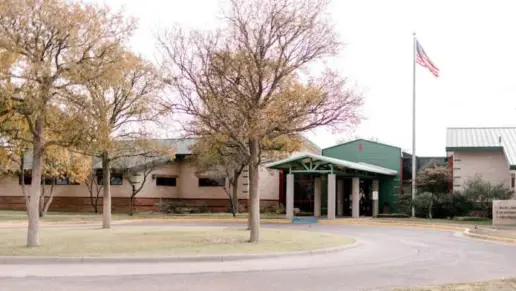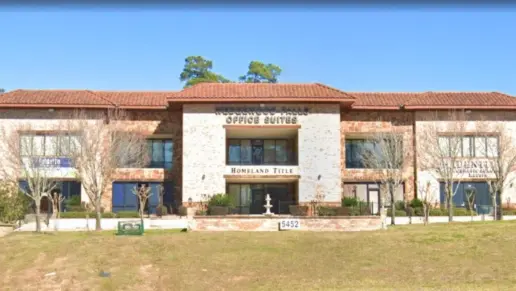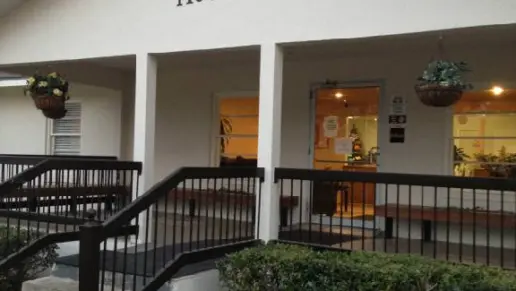About Infinite Recovery – Villa San Miguel
Infinity Recovery - Villa San Miguel is an addiction services provider in Austin, Texas, that provides detox and stabilization services. Their medical staff offers individualized treatments for individuals dealing with co-occurring disorders or substance abuse. When patients complete detox, they can move on to the intensive outpatient program (IOP) or receive inpatient treatment. Clients are also free to transfer to a different rehabilitation center in Austin.
While clients are in the detox program, they’ll receive case management and mental health services from trained staff members. The detox services also include medically assisted detoxification, individual and group therapy and 24 hour medical care.
Clients in detox will receive individualized meal plans and have nutritious meals prepared for them by a chef. Medications that might be used to reduce withdrawal symptoms include Suboxone, buprenorphine and naltrexone. Medical providers will visit patients on a daily basis to monitor the effectiveness of treatment and adjust a client’s treatment if needed. Counselors in individual therapy sessions will help clients uncover the cause of their addiction and develop skills to prevent their relapse.
They may use evidence based treatments such as motivational interviewing, trauma therapy or cognitive behavioral therapy. While patients are going through the process of withdrawal, staff members will continually provide encouragement and support. Group therapy also provides clients with an opportunity to feel supported by their peers. Infinity Recovery believes that the process of discussing addiction and sharing personal stories can provide clients with deeper healing. Additionally, they’ll have a chance to learn from their peers and gain more insight into achieving recovery from addiction.
Gallery


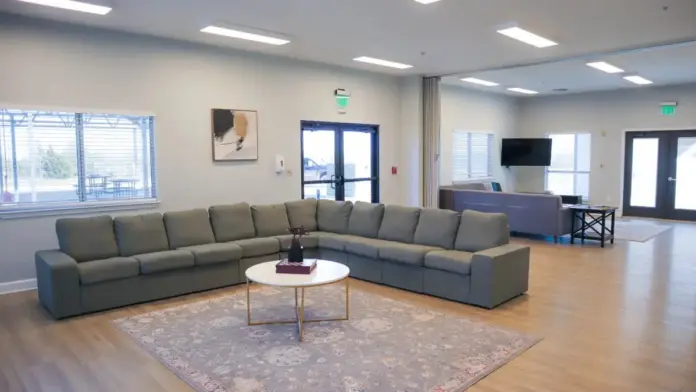
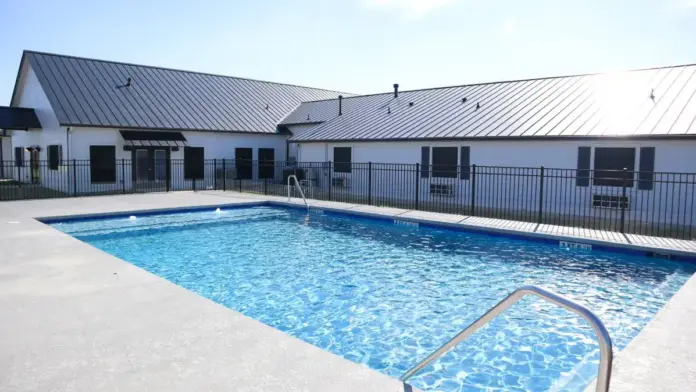

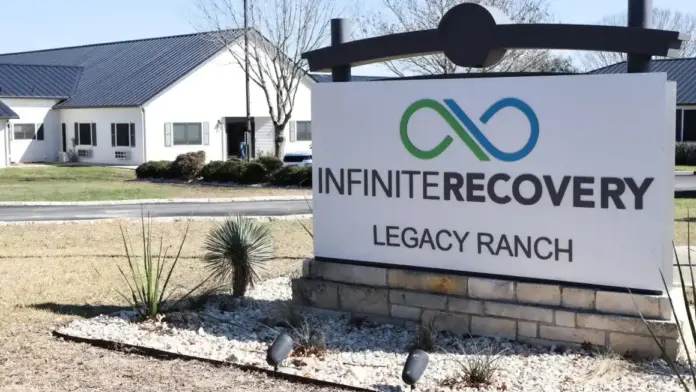
Location
Accepted Insurance



Other Forms of Payment
Self-pay involves paying for treatment out of your own pocket. You can use savings or credit, get a personal loan, or receive help from family and friends to fund your treatment. If you don't have insurance or your insurance plan doesn't cover a specific program, self-pay can help ensure you still get the care you need.
Private insurance refers to any kind of healthcare coverage that isn't from the state or federal government. This includes individual and family plans offered by an employer or purchased from the Insurance Marketplace. Every plan will have different requirements and out of pocket costs so be sure to get the full details before you start treatment.
Sliding scale payments are based on a client's income and family size. The goal is to make treatment affordable to everyone. By taking these factors into account, addiction recovery care providers help ensure that your treatment does not become a financial burden to you or your family, eliminating one barrier to care.
Military members, veterans, and eligible dependents have access to specific insurance programs that help them get the care they need. TRICARE and VA insurance can help you access low cost or no cost addiction and mental health treatment. Programs that accept military insurance often have targeted treatment focused on the unique challenges military members, veterans, and their families face.
Addiction Treatments
Levels of Care
Treatments
The goal of treatment for alcoholism is abstinence. Those with poor social support, poor motivation, or psychiatric disorders tend to relapse within a few years of treatment. For these people, success is measured by longer periods of abstinence, reduced use of alcohol, better health, and improved social functioning. Recovery and Maintenance are usually based on 12 step programs and AA meetings.
During rehab in Texas, you'll deal with underlying issues that contribute to addiction. By addressing these challenges and learning healthy ways to cope with them, you'll develop strategies that help you live a drug-free lifestyle.
Many of those suffering from addiction also suffer from mental or emotional illnesses like schizophrenia, bipolar disorder, depression, or anxiety disorders. Rehab and other substance abuse facilities treating those with a dual diagnosis or co-occurring disorder administer psychiatric treatment to address the person's mental health issue in addition to drug and alcohol rehabilitation.
Opioid rehabs specialize in supporting those recovering from opioid addiction. They treat those suffering from addiction to illegal opioids like heroin, as well as prescription drugs like oxycodone. These centers typically combine both physical as well as mental and emotional support to help stop addiction. Physical support often includes medical detox and subsequent medical support (including medication), and mental support includes in-depth therapy to address the underlying causes of addiction.
Substance rehabs focus on helping individuals recover from substance abuse, including alcohol and drug addiction (both illegal and prescription drugs). They often include the opportunity to engage in both individual as well as group therapy.
Programs


Clinical Services
At Infinite Recovery, they recognize the therapeutic benefits animals provide. Studies show that pet therapy can reduce blood pressure, lower anxiety, tension, and anger. It can also increase endorphins, oxytocin, and provide a sense of empowerment, compassion, and improved self-esteem. That’s why they offer a dog training program that focuses on the parallels between human and animal psychology. Patients will learn how to communicate and train an animal using mindful behavior and positive reinforcement, all while observing how human emotion affects animal behavior.
Cognitive Behavioral Therapy (CBT) is a therapy modality that focuses on the relationship between one's thoughts, feelings, and behaviors. It is used to establish and allow for healthy responses to thoughts and feelings (instead of unhealthy responses, like using drugs or alcohol). CBT has been proven effective for recovering addicts of all kinds, and is used to strengthen a patient's own self-awareness and ability to self-regulate. CBT allows individuals to monitor their own emotional state, become more adept at communicating with others, and manage stress without needing to engage in substance abuse.
Whether a marriage or other committed relationship, an intimate partnership is one of the most important aspects of a person's life. Drug and alcohol addiction affects both members of a couple in deep and meaningful ways, as does rehab and recovery. Couples therapy and other couples-focused treatment programs are significant parts of exploring triggers of addiction, as well as learning how to build healthy patterns to support ongoing sobriety.
EMDR is a therapeutic modality originally developed to help process trauma. In an EMDR session, a patient is prompted to undergo eye movements that mimic those of REM sleep. This is accomplished by watching a therapist's finger move back and forth across, or following a bar of light. The goal is repetitive sets of eye movements that help the brain reprocess memory, which can significantly reduce the intensity of remembered traumatic incidents. Associated memories can heal simultaneously, leaving patients significantly calmer, more stable, and more emotionally relaxed.
Research clearly demonstrates that recovery is far more successful and sustainable when loved ones like family members participate in rehab and substance abuse treatment. Genetic factors may be at play when it comes to drug and alcohol addiction, as well as mental health issues. Family dynamics often play a critical role in addiction triggers, and if properly educated, family members can be a strong source of support when it comes to rehabilitation.
Group therapy is any therapeutic work that happens in a group (not one-on-one). There are a number of different group therapy modalities, including support groups, experiential therapy, psycho-education, and more. Group therapy involves treatment as well as processing interaction between group members.
In individual therapy, a patient meets one-on-one with a trained psychologist or counselor. Therapy is a pivotal part of effective substance abuse treatment, as it often covers root causes of addiction, including challenges faced by the patient in their social, family, and work/school life.
Life skills trainings involve all the skills a person must have in order to function successfully in the world. These include time management, career guidance, money management, and effective communication. Truly successful addiction recovery is based on the ability to not only live substance-free, but to thrive. Life skills teaches the practical necessities of functioning in society, which sets clients up for success in life, and therefore sobriety.
Nutrition therapy, aka medical nutrition therapy (MNT), is a way of treating physical, emotional, and medical conditions through diet. Specific dietary plans are designed by professional nutritionists or registered dietitians, and patients follow them in order to positively affect their physical and mental health.
There is increasing scientific evidence that shows the link between trauma, chronic stress, and drug and alcohol addiction. Early childhood trauma often plays a large role as to why people turn to drugs and/or alcohol and many in the grips of addiction experience traumatic events as a result of a high-risk lifestyle. This cycle of chronic stress and addiction can seem paralyzing and there is often no way of recovering from one without dealing with the other. That’s why Infinite Recovery employs masters-level therapists trained in trauma resolution, pet-assisted therapy and Eye Movement Desensitization and Reprocessing (EMDR),a specialized treatment for healing the brain from trauma.
Amenities
-
Private Setting
Accreditations

The Joint Commission, formerly known as JCAHO, is a nonprofit organization that accredits rehab organizations and programs. Founded in 1951, the Joint Commision's mission is to improve the quality of patient care and demonstrating the quality of patient care.
Joint Commission Accreditation: Yes
Accreditation Number: 594597

LegitScript has reviewed Infinite Recovery – Villa San Miguel as part of their certification program, and has determined that it meets the LegitScript standards for legality, safety and transparency.
LegitScript verified in November 2019

State Licenses are permits issued by government agencies that allow rehab organizations to conduct business legally within a certain geographical area. Typically, the kind of program a rehab facility offers, along with its physical location, determines which licenses are required to operate legally.
State License: Texas
License Number: 3767
Contact Information
1524 S I-35 Frontage Rd
Unit 201
Austin, TX 78704











